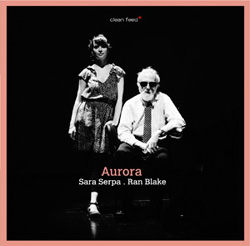
Newcomer vocalist Sara Serpa is accompanied by her mentor, pianist Ran Blake, for a set of wide-ranging jazz songs that are unconventionally and emotionally performed.
In Stock
Quantity in Basket: None
Log In to use our Wish List
Shipping Weight: 3.00 units
EU & UK Customers:
Discogs.com can handle your VAT payments
So please order through Discogs
Sample The Album:
Ran Blake-piano
Sara Serpa-voice
Click an artist name above to see in-stock items for that artist.
UPC: 5609063002645
Label: Clean Feed
Catalog ID: CF264
Squidco Product Code: 17110
Format: CD
Condition: New
Released: 2012
Country: Portugal
Packaging: Cardstock gatefold foldover
Recorded at Auditorio da Culturgest, Lisboa, on May 10th and 11th, 2012 by Luis Delgado.
"At a time when so many singers and accompanists play it safe, it's refreshing to hear vocalist Sara Serpa and pianist Ran Blake do something different-maybe even risky-with the standard jazz song repertoire. Their second album together, Aurora (November 1st 2012, Clean Feed), gives listeners a deeper and more intimate view of one of the most remarkable partnerships in jazz. Recorded live in concert at Lisbon's Auditório da Culturgest and at private session at the theater the day before, the music covers a wide range. Some of it humorous, at other times it is imbued with a sense of tragedy or tender romance, but at all times it is daring. It's little wonder that All About Jazz critic Ken Dryden said of their debut release Camera Obscura (Inner Circle) "the magical blend of Blake's piano with Serpa's voice proves captivating."
The musical relationship between Blake and Serpa, which began as mentor and student when Serpa attended Boston's New England Conservatory, has deepened. "I feel I am a bit more mature," Serpa says. "The first album was much more experimental for me, since I didn't know what would it sound like. This second album is almost like a rebirth of the duo, now much more assured of its identity. I feel Ran and I are more comfortable playing with each other and have developed a very good relationship in and outside the music world."
Working together they selected a unique set of songs to perform. Few pianists have as broad and deep a knowledge of jazz song repertoire as Ran Blake. So it's no surprise that there are some rarely played gems heard on Aurora. Serpa has a keen understanding of melody and lyrics and made very personal selections as well. "To learn this new repertoire was a good experience," Serpa says. "This repertoire is almost like time travel for me. Ran picked songs from old movies, songs he used to play when he was young, or songs sung by singers we both love. It was great for me to learn these songs and where they came from, and to try to make them mine. There are some subjects that are timeless and will always be universal. I picked songs that I felt were important for their words."
Blake suggested the rarely heard ballad, "Saturday," which Sarah Vaughn recorded early in her career. Two lovely songs written for Abbey Lincoln by the under-recognized composer R.B. Lynch, "When Autumn Sings" and "Love Lament," feature lyrics by the late vocalist. The light-hearted "Moonride" was originally recorded by Chris Connor, another mutual favorite of Blake and Serpa. Blake dug into his vast knowledge of film for "Dr. Mabuse," a melody appearing in Konrad Elfer's film score to Fritz Lang's Dr. Mabuse: The Gambler. He picked "The Band Played On" because it appears in the soundtrack of Hitchcock's Strangers on a Train. Serpa is especially enamored of the words to "Last Night When We Were Young," a rueful meditation on the highs and lows of romance. (Pay special attention when she sings the line, "Today the world is old.") "Cansaço," a Portuguese fado first recorded by Amália Rodrigues in 1958, is also a song about the search for the meaning of life and love. Serpa goes far out on an artistic limb and gives an unaccompanied performance of Billie Holiday's "Strange Fruit," whose chilling lyrics make it one of the most challenging songs in the jazz canon.
To work with the unorthodox and utterly original Blake, Serpa needs a firm understanding of a song's melody and words. Blake mercurial, but always empathetic, accompaniment tests her grasp of these fundamentals, but also inspires her to take greater creative freedom with tempo, pacing, harmony, and timbre. On "Saturday," the give and take between Serpa and Blake is the key to the originality of their rendition. Serpa strikes a vulnerable and forlorn tone in keeping with the song's words, but her phrasing and dynamics reshape the song. Blake, an expert at setting off singers, leaves space for the voice to shine through, uses unexpected chords, and sometimes echoes Serpa phrasing. Their communication on "Dr. Mabuse" is especially close, too. Serpa's wordless singing remains focused on the melody, but she is also alert to Blake's quirky logic. The melody of "Cansaço" is haunted by sadness and Serpa inhabits it with total emotional commitment. Blake comes at it from different directions, deepening it, undercutting it, rhythmically supporting it, and sometimes letting the voice hang suspended alone with its melancholy. With Serpa and Blake, nothing is taken for granted, no song is performed by rote, each tune is an opportunity for musical and emotional adventure.
New York-based vocalist and composer Sara Serpa "doesn't sing songs as much as she becomes part of them," says writer Phil DiPietro. Since moving to New York, she has become not only an in-demand sideman, but a band leader in her own right. Her 2008 debut CD as a leader, Praia (Inner Circle) earned wide critical praise and attention. "Serpa has crafted the debut of 2008 by innovating in the way all jazz innovators have done before her-speaking, in this case singing, with her own voice," said All About Jazz. In his Jazziz review of her most recent album as a leader, Mobile (Inner Circle), Jon Garelick writes, "she creates music any trumpeter or saxophonist would be proud of - varied in texture and dynamics, elastic in rhythm, but with a core motivic logic that seems to emerge spontaneously from one phrase to the next." All About Jazz New York raved, "Her voice is light and elastic, sporting a fierce intellect. Couple this with a vision/sense of humor and the result is a radioactive type of 21st Century Beat Poetry.... Serpa is searching, and her search continues to provide compelling and provocative music." In addition to leading her quintet, she also works in a duet with guitarist André Matos. Her contributions to Greg Osby's 9 Levels (Inner Circle) were cited as a highlight of the alto saxophonist's album. "Serpa is especially impressive, her wordless vocals locked to Osby's sax lines in perfect tune," wrote Peter Margasak in the Chicago Reader.
In a career that now spans six decades, MacArthur "Genius Grant" winning pianist Ran Blake has created a unique niche in improvised music as an artist and educator. With a characteristic mix of spontaneous solos, modern classical tonalities, the great American blues and gospel traditions, and themes from classic Film Noir, Blake's singular sound has earned a dedicated following all over the world. All About Jazz writer Henry Smith praises "Blake's noir-like approach to the piano, with his open sense of harmony and time as well as the deep and beautiful melancholy which ingrains his playing ... Never once does a cliché emerge from his fingers as he infuses these works with a personal and carefully chosen character all his own." Blake's musical legacy includes nearly 40 albums on some of the world's finest jazz labels, some the best of which are duets with singers such as Jeanne Lee, Christine Correa, and Dominique Eade. Since 1968, Blake has been a groundbreaking educator at Boston's New England Conservatory where he was the founding director of the Third Stream (now Contemporary Improvisation) Department which celebrates its 40th anniversary this year.
The combination of veteran Blake and newcomer Serpa is a May-September pairing that creates music that's both fresh and exciting, and timelessly relevant to the human condition."-Philip DiPietro, All About Jazz
Artist Biographies
• Show Bio for Ran Blake "Ran Blake (b. 20 April 1935, Springfield, MA) In a career that now spans five decades, pianist Ran Blake has created a unique niche in improvised music as an artist and educator. With a characteristic mix of spontaneous solos, modern classical tonalities, the great American blues and gospel traditions, and themes from classic Film Noir, Blake's singular sound has earned a dedicated following all over the world. His dual musical legacy includes more than 40 albums on some of the world's finest jazz labels, as well nearly 40 years as a groundbreaking educator at Boston's New England Conservatory. Blake first discovered the dark, image laden and complex character driven films that would so influence his music at age 12 when he first saw Robert Siodmak's Spiral Staircase. "There were post World War II musical nuances that if occasionally banal and as clichéd as yesterday's soap operas, were often so eerie, haunting and unforgettable," Blake would later write. "After more than eighteen viewings during a period of twenty days, plots, scenes, and melodic and harmonic surfaces intermingled, obtruding into my day life as well as my dreams." Long before the invention of virtual reality, Blake began mentally placing himself inside the films and real life scenarios that inspired his original compositions like "Spiral Staircase", "Memphis" and "The Short Life of Barbara Monk". The influence of the Pentecostal church music he also discovered growing up in Suffield, Connecticut, combined with his musical immersion in what he terms "a Film Noir world," laid the groundwork for his earliest musical style. That early style would become codified when he and fellow Bard College student and vocalist Jeanne Lee became a duo in the late 1950's. Their partnership would create the landmark cult favorite The Newest Sound Around (RCA) in 1962, introducing the world to both their unique talents and their revolutionary approach to jazz standards. This debut recording would also show the advancing synthesis of Blake's diverse influences with its haunting version of David Raksin's title track from the movie Laura and his original tribute to his first experience with gospel music, "The Church on Russell Street". The Newest Sound Around was initiated and informally supervised by the man that would be come Blake's most significant mentor and champion, Gunther Schuller. The two began their forty-year friendship at a chance meeting at Atlantic Records' New York studio in January 1959. Less than two years earlier, Schuller coined the term "Third Stream" at a lecture at Brandeis University. Schuller was recording on Atlantic-helping to define his term in musical practice-with future jazz giants like John Lewis, Bill Evans, Eric Dolphy, and Ornette Coleman. Ran Blake came to the label to accept what he calls "a low level position" that allowed him to be near the music of inspirations like Chris Connor, Ray Charles, and Harlem's famous Apollo Theater. Blake's long association with Schuller, modern classical music, and Schuller's controversial term began here, and was forged by years of friendship, collaboration and innovation. One of the only people in the music world who could see the potential of Blake's unorthodox sounding musical style, Schuller invited Blake to study at the Lenox School of Jazz in the summers of 1959 and 1960. While in Lenox, also home to the classical music mecca at Tanglewood in western Massachusetts, Blake studied with the jazz giants who formed the faculty of this one-of-a-kind institution-Lewis, Oscar Peterson, Bill Russo, and many others-and began formulating his style in earnest. He also studied in New York with piano legends Mary Lou Williams and Mal Waldron. A year after Schuller became president of Boston's New England Conservatory in 1967, Blake joined his mentor and many one-time teachers and inspirations, including George Russell, as a faculty member at NEC, the first American conservatory to offer a jazz degree. In 1973, Blake became the first Chair of the Third Stream Department, which he co-founded with Schuller at the school. He still holds this position-though the department was recently renamed the Contemporary Improvisation Department to address both its expansion from Blake's own additions and the outdatedness of the term. Blake's teaching approach emphasizes what he calls "the primacy of the ear," as he believes music is traditionally taught by the wrong sense. His innovative ear and style development process elevates the listening process to the same status as the written score. This approach compliments the stylistic synthesis of the original Third Stream concept, while also providing an open, broad based learning environment that promotes the development of innovation and individuality. Musicians of note Don Byron, Matthew Shipp, and John Medeski have studied with Blake at NEC.Although Blake's teaching career would soon become the second half of his dual musical legacy, his career as an influential performer and wholly individual jazz artist is his main source of fame. Following Jeanne Lee's departure to become one of the premier vocalists in the burgeoning avant-garde, Blake recorded the prototypical Ran Blake Plays Solo Piano (ESP) in 1965. The recording showed a clear refinement of Blake's style of reinventing popular standards by incorporating his other influences from Film Noir, gospel, his favorite pianist Thelonious Monk, and composers like Stravinsky, Prokofiev, and Messaien. His reputation as the major Third Stream pianist, and later an educator, soon followed, as he could improvise just as easily on a jazz chord progression as a twelve-tone row. From 1965 on, Blake worked primarily as a solo pianist on more than 30 albums. Although most of the music was primarily informed by his Film Noir perspective, many of his most acclaimed recordings are tributes to artists like Monk, Sarah Vaughn, Horace Silver, George Gershwin, and Duke Ellington. These tributes merged with his teaching career by inspiring an annual summer course he still teaches at NEC, thoroughly exploring the music of a single artist. He has also recorded with Jaki Byard, Anthony Braxton, Steve Lacy, Houston Person, Enrico Rava, Clifford Jordan, Ricky Ford, Christine Correa, David "Knife" Fabris, and others, including a 1989 reunion with Jeanne Lee.Most recently, Blake reinvented himself again for a new millennium of fans. Although solo albums like Film Noir (Arista/Novus) and Duke Dreams (Soul Note) earned five star ratings in publications like Down Beat and the All Music Guide to Jazz, 2001's Sonic Temples (GM Recordings) is Blake's best received and most critically acclaimed recording in several years. The recording features Schuller's two jazz musician sons, Ed (bass) and George (drums), whom Blake has known their entire lives and worked with throughout the last 25 years. This is his first recording in the standard piano trio format, an unprecedented statistic for a jazz pianist of his stature. This collaboration, which Gunther Schuller conceived and produced as a testament to the unheard breadth of Blake's abilities, showcases Blake performing with a rhythm section and features a repertoire of up tempo standards and group improvisations, as well as trademark Blake originals. 2012 marked Blake's fifty years as a professional recording artist, making him one of most resilient artists in jazz history. In the tradition of two of his idols, Ellington and Monk, Ran Blake has incorporated and synthesized several otherwise divergent styles and influences into a single innovative and cohesive style all his own, ranking him among the geniuses of the genre. The addition of his innovative aural based teaching approach, and the nearly thirty years he has spent influencing future generations of musicians, makes his contributions to the long tradition of jazz even more impressive. Fifty years after his innovative duo release with Jeanne Lee, The Newest Sound Around (RCA-Victor, 1961), Ran continues to evolve his noir language on the piano and remains as active as ever with full-time teaching, recordings, touring, and writing a new book, "Storyboarding Noir." A recent Downbeat review said, "Ran Blake is so hip it hurts ... a pianist who can make you laugh at his dry humor one second and wring a tear the next." His music still sounds fresh and unmistakably unique. In 2012, Ran performed in Portugal with vocalist Sara Serpa, in France with Ricky Ford's Orchestra at the Toucy International Jazz Festival, and at the Qubec Jazz Festival where he performed solo with Hitchcock's I Confess (1953)." ^ Hide Bio for Ran Blake • Show Bio for Sara Serpa "Natural from Lisboa, Sara Serpa is a singer, composer, improviser, that through her practice and performance, explores the use of the voice as an instrument. Recognized by her wordless singing, Serpa has been working in the field of jazz, improvised and experimental music, since moving to New York in 2008. Described by JazzTimes magazine as "a master of wordless landscapes" and by the New York Times as "a singer of silvery poise and cosmopolitan outlook", Serpa started her career recording and performing with jazz luminaries such as alto-saxophonist Greg Osby, and Grammy-nominated pianist Danilo Perez. Literature, film, visual arts, nature and history inspire Serpa in the creative process and development of her music. As a leader, she has produced and released seven albums, (with labels Sunnyside Records, Clean Feed, Tzadik and Inner Circle Music), the latest being a partnership with Portuguese guitarist André Matos, All The Dreams (2016), a successful follow-up to their debut Primavera (2014), which was noted by All About Jazz: "Their music is art at the point where minimalism and cangiante merge, resulting in an otherworldly sound that's utterly enthralling and completely unique." Serpa's collaboration with her teacher/ mentor, Guggenheim and MacArthur Fellow pianist Ran Blake resulted in three recorded albums, providing fertile ground for the singer to explore/ interpret the Great American Songbook along with Film-Noir: Camera Obscura (2010), Aurora (2012), Kitano Noir (2015), the latter described by PopMatters as "wonderfully hypnotic". Sara Serpa is a member of Mycale, an international a-capella quartet commissioned by MacArthur Fellow and avant-garde composer John Zorn, whose newest release Gomory (2015) was praised by The New York Times as "astonishingly beautiful, a high point in the series; it sounds medieval and new at the same time." With literature has a source of inspiration, Serpa released the album Mobile (2011), title that refers to themes of travel and movement, reflects her passion for reading. Inspired by authors from Homer to Melville to V.S Naipaul, and featuring André Matos, Kris Davis, Ben Street and Ted Poor, it was noted as "work of art in motion" by the Chicago Jazz Magazine and outlined by JazzMan Magazine (France): "Serpa's commitment to this special and difficult project works wonders - it would be difficult not surrender to it." Serpa's accomplishments extend beyond the jazz world. Serpa has performed/ interpreted music of contemporary composers such as Andreia Pinto- Correia, Derek Bermel (with the Albany Symphony Orchestra, conducted by David Allan Miller), Aya Nishina (Flora (2014), Guillermo Klein and Joseph C. Phillips Jr. (Changing Same (2015). A New England Conservatory Master of Music (MM) in Jazz Performance, and a graduate from ISPA (Portugal) in Social Work and Rehabilitation, the Portuguese singer completed her Piano and Classical Singing Studies at Lisbon National Conservatory. She later fell in love with Jazz and Improvisation through the Hot Clube de Portugal's school, while working on her research thesis about Refugee Women in Portugal. She relocated to the United States in 2005 to attend Berklee College of Music, followed by New England Conservatory. Serpa was voted as "Musician of the Year" in 2010 by the newspaper O Público, one of the major daily publications in Portugal, and was the cover of the U.S magazine Jazziz in 2012. Serpa has been voted and included by the DownBeat Magazine Critics Poll in the "Rising Star Vocalist" list for three times: 2014, 2015 and 2016. She has performed her own music in Europe, Australia, North and South America, singing at international festivals such as Festa do Jazz, the Panama Jazz Festival, Festival de Jazz de Montevideo, Wangaratta Jazz Festival, Adelaide Festival, or venues like Bimhuis, Casa da Música, Village Vanguard, Jazz Standard, the Brooklyn Academy of Music, the Metropolitan Museum of Art, and the Kennedy Center for the Arts, among others. Currently, Serpa leads City Fragments, an ensemble featuring three voices (Sofia Rei, Aubrey Johnson), cello (Erik Friedlander), guitar (Andre) and drums (Tyshawn Sorey), which allows her to deepen and expand her passion for vocal music. Serpa has been working on a composition/suite inspired by French philosopher/ feminist Luce Irigaray's writings, to be recorded in 2017." ^ Hide Bio for Sara Serpa
11/20/2024
Have a better biography or biography source? Please Contact Us so that we can update this biography.
11/20/2024
Have a better biography or biography source? Please Contact Us so that we can update this biography.
Track Listing:
1. Saturday 3:01
2. When Autumn Sings 3:11
3. Dr. Mabuse 5:19
4. Cansaço 5:13
5. Moonride 3:12
6. Strange Fruit 3:58
7. Mahler Noir 8:03
8. The Band Played On 2:25
9. Love Lament 5:27
10. Wende 3:07
11. Fine And Dandy 2:58
12. Last Night When We Were Young 5:25
Improvised Music
Jazz
Duo Recordings
Clean Feed
Search for other titles on the label:
Clean Feed.


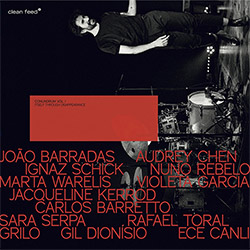
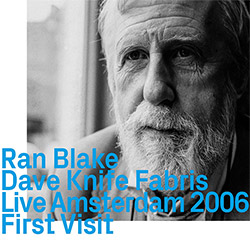
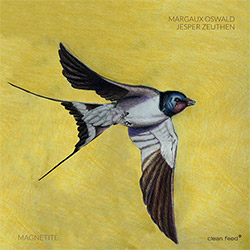

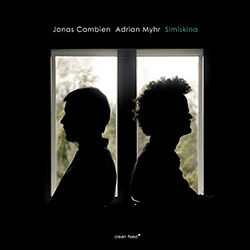
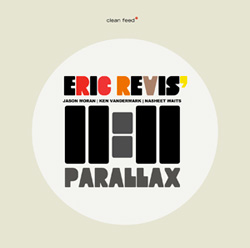


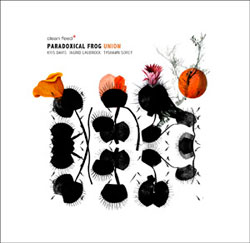
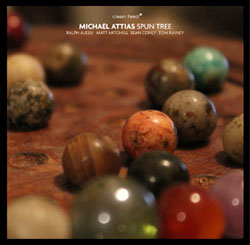
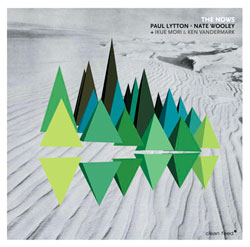

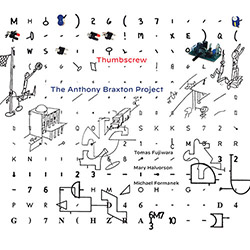
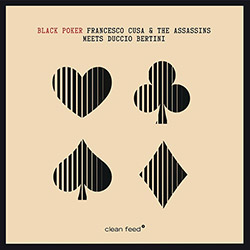
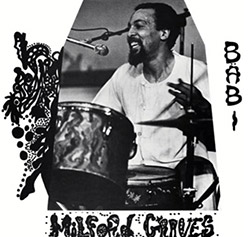
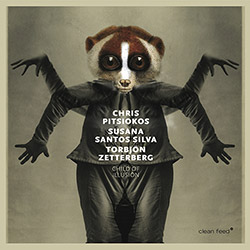
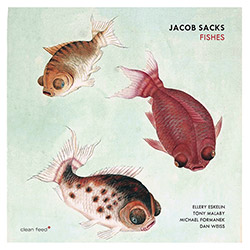

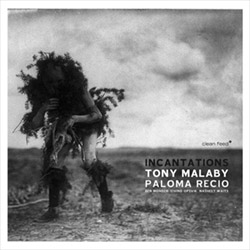
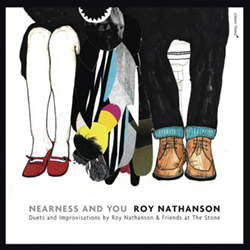
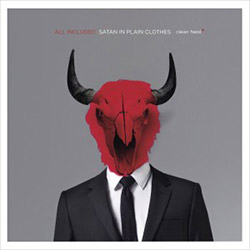




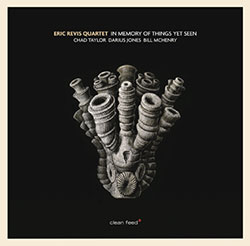


![Guy, Barry / Ken Vandermark: Occasional Poems [2 CDs]](https://www.teuthida.com/productImages/misc4/34849.jpg)
![Novoa / Carter / Mela Trio: Vol.1 [VINYL]](https://www.teuthida.com/productImages/misc4/35236.jpg)


![Elephant9 : Mythical River [VINYL]](https://www.teuthida.com/productImages/misc4/34624.jpg)
![Evans, Peter (Evans / Eldh / Black): Extra [VINYL]](https://www.teuthida.com/productImages/misc4/35279.jpg)

![McPhee, Joe: Straight Up, Without Wings [BOOK]](https://www.teuthida.com/productImages/misc4/35454.jpg)
![Jeck, Philip: rpm [2 CDs]](https://www.teuthida.com/productImages/misc4/35455.jpg)













![Barker / Parker / Irabagon: Bakunawa [VINYL]](https://www.teuthida.com/productImages/misc4/35533.jpg)
![Blaser, Samuel / Marc Ducret / Peter Bruun: Dark Was The Night, Cold Was The Ground [VINYL 10-inch]](https://www.teuthida.com/productImages/misc4/35492.jpg)








![Warren, Kenny (Warren / Hoffman / Ellman): Sweet World [VINYL]](https://www.teuthida.com/productImages/misc4/35451.jpg)

















![DNS: Taking Big Bites Of The Khandas Three Cafes Deep [2 CDs]](https://www.teuthida.com/productImages/misc4/35334.jpg)




![Cleaver, Gerald: The Process [VINYL]](https://www.teuthida.com/productImages/misc4/34966.jpg)




![Alva Noto: HYbr:ID II [VINYL 2 LPs]](https://www.teuthida.com/productImages/misc4/35201.jpg)

![Baron, Derek / Luke Martin: Distinct and Concealed [CASSETTE + DOWNLOAD]](https://www.teuthida.com/productImages/misc4/35079.jpg)

![Lyle, Erica Dawn : Colonial Motels [CASSETTE + DOWNLOAD]](https://www.teuthida.com/productImages/misc4/35080.jpg)









![Sanna, Claudio: Compositori Sardi Contemporanei II [2 CDs]](https://www.teuthida.com/productImages/misc4/35317.jpg)







![Zurria, Manuel: Fame di Vento [3 CDs]](https://www.teuthida.com/productImages/misc4/35167.jpg)

![Granberg, Magnus / Nattens Inbrott / Skogen: Holde Traume, Kehret Wieder! [2 CDs]](https://www.teuthida.com/productImages/misc4/35038.jpg)
![Frey, Jurg: Outermost Melodie [2 CDs]](https://www.teuthida.com/productImages/misc4/35039.jpg)

![Pavone, Jessica: Reverse Bloom [VINYL]](https://www.teuthida.com/productImages/misc4/34895.jpg)




![Modney (Modney / Wooley / Gentile / Roberts / Pluta / Symthe / ...): Ascending Primes [2 CDs]](https://www.teuthida.com/productImages/misc4/34852.jpg)









![Elephant9 with Terje Rypdal: Catching Fire [VINYL 2 LPs]](https://www.teuthida.com/productImages/misc4/35355.jpg)
![Deerlady (Obomsawin, Mali / Magdalena Abrego): Greatest Hits [VINYL]](https://www.teuthida.com/productImages/misc4/34876.jpg)




![Haino, Keiji: Black Blues [2 CDs]](https://www.teuthida.com/productImages/misc4/35109.jpg)



![Surplus 1980: Illusion of Consistency [CD]](https://www.teuthida.com/productImages/misc4/35069.jpg)
![Staiano, Moe: Away Towards the Light [VINYL + DOWNLOAD]](https://www.teuthida.com/productImages/misc4/35037.jpg)



![Caveira (Gomes / Sousa / Abras / Ferrandini): Ficar Vivo [VINYL]](https://www.teuthida.com/productImages/misc4/34643.jpg)
![Gregg, J. J. / David Van Auken: Lunar Prairie [CD w/ DOWNLOAD]](https://www.teuthida.com/productImages/misc4/34611.jpg)

![Coultrain: Mundus [VINYL]](https://www.teuthida.com/productImages/misc4/32439.jpg)
![Mattin: Songbook #6 [VINYL]](https://www.teuthida.com/productImages/misc4/27317.jpg)
![Punkappella: Wake Up [7-inch VINYL]](https://www.teuthida.com/productImages/misc4/17519.jpg)
![Residents, The: WARNING: UNiNC.: Live And Experimental Recordings 1971-1972 [VINYL 2 LPs]](https://www.teuthida.com/productImages/misc4/31521.jpg)
![Coultrain: Phantasmagoria [VINYL]](https://www.teuthida.com/productImages/misc4/30142.jpg)
![Lennon, Sean Ono: Asterisms [VINYL]](https://www.teuthida.com/productImages/misc4/34517.jpg)

![Coley, Byron: Dating Tips for Touring Bands [VINYL]](https://www.teuthida.com/productImages/misc4/17906.jpg)

![Lost Kisses: My Life is Sad & Funny [DVD]](https://www.teuthida.com/productImages/misc4/lostKissesDVD.jpg)